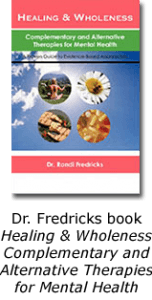PTSD Treatment and Trauma Therapy
 If you have been neglected, abused or hurt you might want to determine how much pain from trauma you are carrying. Individuals hold the keys to their addiction recovery, information and resources are necessary for deciding on the path they will take. For many the voids in life allow help for alcohol and drug addiction to relapse.
If you have been neglected, abused or hurt you might want to determine how much pain from trauma you are carrying. Individuals hold the keys to their addiction recovery, information and resources are necessary for deciding on the path they will take. For many the voids in life allow help for alcohol and drug addiction to relapse.
Unfortunately, most therapy deals with the specific alcohol and drugs, but neglects any help or information for the underlying causes. A more complete wellness might be found by seeking healing from past pain coupled with overcoming substances during addiction therapy.
Healing and Recovery from Trauma
The world of codependency, drugs and alcohol is built on lack of trust and dishonesty. Nobody knows who to count on, what to expect, or where to find information or help. Lies and deceit are evident but most families do not confront. Children can be ruled by a glance or expression, and home is often times chaotic, putting on a pretense of calm.
Many times those who are encouraged to hide emotions are naturally traumatized because there is no help, information, nurturing, explanation, warmth or encouragement of individuality. Basic needs of human development are denied often hindering healthy emotional and spiritual growth.
How Trauma and Abuse Impact Addiction
In situations where there is addiction, the recovery process and general life can find unpredictable, emotional responses generating a constant string of trauma. This traumatic pattern creates a pain, which is often ignored or compounded by scoffing, creates the mascot, and hinders recovery.
Although aware of the issues and deception, the lost child has learned not to ask questions or be confrontational. They “play it safe” to avoid pain and survive. The hero, also aware of all issues continues to act as though all is well, and seeks approval through perfectionism. The rebel, in the face of the issues, acts out.
 The symptom of repression is present when traumatic experiences are in present in addiction recovery Repression is a key symptom of traumatic experience.
The symptom of repression is present when traumatic experiences are in present in addiction recovery Repression is a key symptom of traumatic experience.
Repression can block emotional and spiritual growth as it eliminates or denies feelings, which are the bridge to true emotional and spiritual life, the “child,” or “inner self.” Therefore, in a traumatic situation, the bond to the emotional or spiritual realm, is denied and original, creative, or express ideas are not allowed to surface.
Overcoming trauma has to do with breaking the cycle of repression and putting responsibility on those who ruled your life. A family should realize individuality and different goals and thought systems of each member.
Recovery from Trauma and Addiction
Trauma and addiction are often closely related and when unchecked can feed off of each other, creating a situation much more challenging for addiction recovery opposed to dealing with one aspect by itself. In cases where the two are connected, the underlying cause must be overcome or the door for relapse is open. Addiction recovery is about being whole, requiring the removal of all underlying causes.
The process of healing and overcoming must not be rushed. Overwhelming a person will only confirm and compound emotional insecurity. While the structure and disciplined style of twelve steps are beneficial to many, moderation may works for well for those who have used addiction to cover up issues, but still have not dealt with the underlying emotional burden feeding the addiction.
Because drug addiction is often associated with trauma, it is always a good idea to work with a drug and alcohol counselor who is also a licensed therapist.




